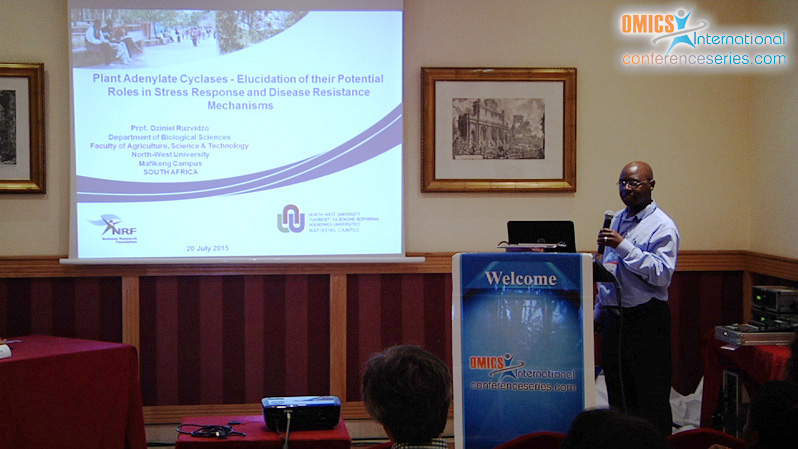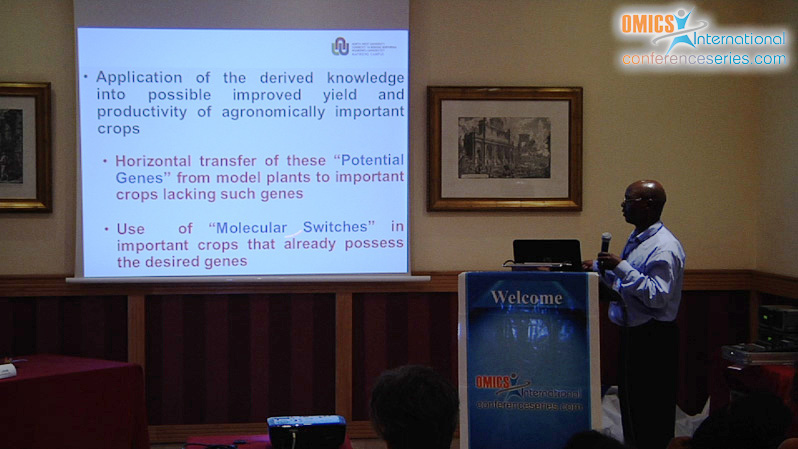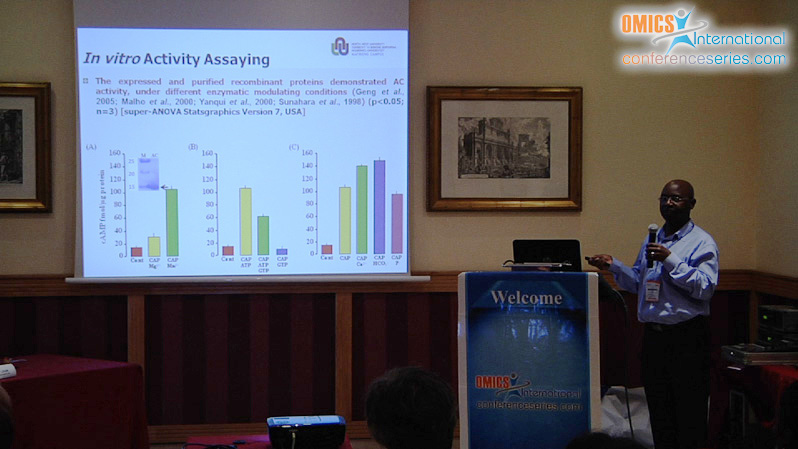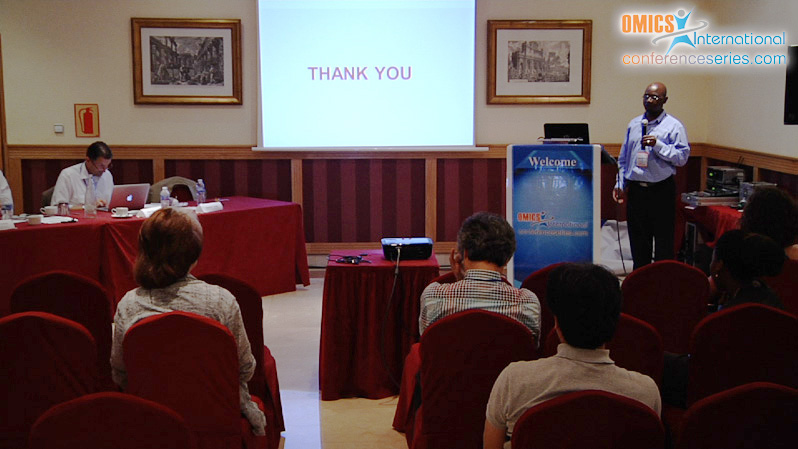
Oziniel Ruzvidzo
North-West University,South Africa
Title: Plant Adenylate Cyclases - Elucidation of their Potential Roles in Stress Response and Disease Resistance Mechanisms
Biography
Biography: Oziniel Ruzvidzo
Abstract
Adenylate cyclases (ACs) are enzymes capable of converting the cellular molecule adenosine 5′-triphosphate (ATP) to the second messenger cyclic 3′,5′-adenosine monophosphate (cAMP) (Robison et al., 1968). Apparently, while in animals and other lower eukaryotes, ACs and their cAMP have firmly been established as important signaling molecules with critical roles in cellular processes like signal transduction and stress response (Gerisch et al., 1975), in higher plants however, only 4 ACs have so far been practically and experimentally confirmed. These are the Zea mays pollen protein responsible for the polarized pollen growth (Moutinho et al., 2001), the Arabidopsis thaliana pentatricopeptide repeat protein responsible for pathogen responses and gene expressions (Ruzvidzo et al., 2013), the Nicotiana benthamiana adenylyl cyclase protein responsible for the tabtoxinine-β-lactam-induced cell deaths during wildfire diseases (Ito et al., 2014), and the Hippeastrum hybridum adenylyl cyclase protein involved in stress signalling (Swiezawska et al., 2014). With continued work in this specific field domain, a recent study has further propossed an array of at least 14 other AC-encoding gene candidates in the Arabidopsis genome, and based on the functionally assigned amino acids in the catalytic center of annotated and/or experimentally tested nucleotide cyclases in lower and higher eukaryotes (Gehring, 2010). Our work therefore, is presently involved in the recombinant expression and functional characterization of these proposed AC genes to try and elucidate their possible physiological roles in stress response and disease resistance mechanisms. To date, 4 of these candidate genes have already been fully characterized, with some intriguing outcomes, while more work is still underway with the rest of the other genes.




